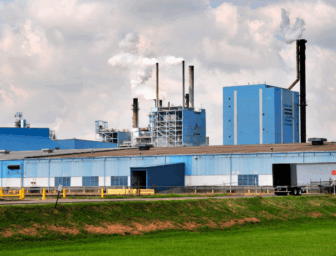$3.2 billion pipeline is the second of four major gas industry projects proposed in Virginia to file for federal approval
Analysis shows clean energy alternatives would create more jobs while protecting the climate
RICHMOND—Today, Mountain Valley LLC, a joint venture of companies led by EQT Midstream Partners, filed its federal application to build the proposed Mountain Valley Pipeline. This $3.2 billion, 42-inch-wide fracked gas pipeline would stretch 301 miles from northwestern West Virginia to southern Virginia, require up to three compressor stations, and is the second of four pipeline projects proposed for the same region of Virginia and West Virginia to apply for federal approval. Just last month, Dominion Resources filed its application to construct the controversial 564-mile Atlantic Coast Pipeline.
The Chesapeake Climate Action Network is calling on the Federal Energy Regulatory Commission (FERC) to fully assess the harm both projects would inflict on the climate as part of a comprehensive environmental review that also considers clean energy alternatives.
Drew Gallagher, Virginia Organizer for the Chesapeake Climate Action Network, had the following statement:
“Virginia is facing an unprecedented expansion of fracked-gas infrastructure, with potentially disastrous consequences for our climate, health, homes and unique natural resources. Along with Dominion’s Atlantic Coast Pipeline, the Mountain Valley Pipeline would lock us into decades more reliance on a dirty fossil fuel that’s as bad as coal for the climate.
“In conducting its review, FERC must stop turning a blind eye to the climate harm of fracked gas, and start prioritizing truly clean alternatives. Studies show methane traps heat 86 times more effectively than carbon dioxide. No review will be adequate unless FERC considers the full cycle of greenhouse gas pollution that the project will trigger from fracking wells to compressor stations to all 301 miles of pipeline to the burning of the gas.
“A Chesapeake Climate Action Network analysis shows that investing $3.2 billion into clean energy alternatives, instead of another fossil fuel pipeline, would be a far better deal for Virginia. For instance, if Mountain Valley LLC invested $3.2 billion in solar energy, it could conservatively fund the installation of enough solar panels to power more than 273,000 Virginia homes and reduce carbon emissions at a rate equal to taking more than 407,000 cars off the road.[1]
“Investing this $3.2 billion in wind energy would bring similar benefits while creating 4,770 jobs during construction and 1,180 permanent jobs annually.[1] By contrast, a widely criticized study funded by Mountain Valley LLC estimated that the pipeline would support 4,300 construction jobs, and 34 permanent jobs, which doesn’t factor in the significant economic costs or job losses that could result from leaks, explosions, declining property values, and harm to natural resources.
“FERC and Governor McAuliffe must wake up to the reality that we can and must meet our energy needs without jeopardizing Virginians’ homes, health, and climate.”
The Mountain Valley Pipeline is one of four interstate gas pipeline projects currently proposed for the central Blue Ridge and Appalachian Mountain region of Virginia and West Virginia—along with Dominion’s Atlantic Coast Pipeline, Williams’ Appalachian Connector Pipeline, and the Columbia Pipeline Group’s WB Xpress Project.
On Monday, CCAN will join pipeline foes and bipartisan legislators for a tele-press conference to demand a single, comprehensive regional review of all four proposed projects. The coalition will release a joint letter to FERC from more than 30 groups.
Contact:
Drew Gallagher, 804-896-2654, drew@chesapeakeclimate.org
Kelly Trout, 240-396-2022, kelly@chesapeakeclimate.org
1. Solar and wind energy analysis is based on U.S. Energy Information Administration data and National Renewable Energy Laboratory modeling.
###
The Chesapeake Climate Action Network is the biggest and oldest grassroots organization dedicated to fighting climate change in Virginia, Maryland and Washington, DC. CCAN is building a powerful movement to shift our region away from climate-harming fossil fuels and to clean energy solutions: www.chesapeakeclimate.org.




